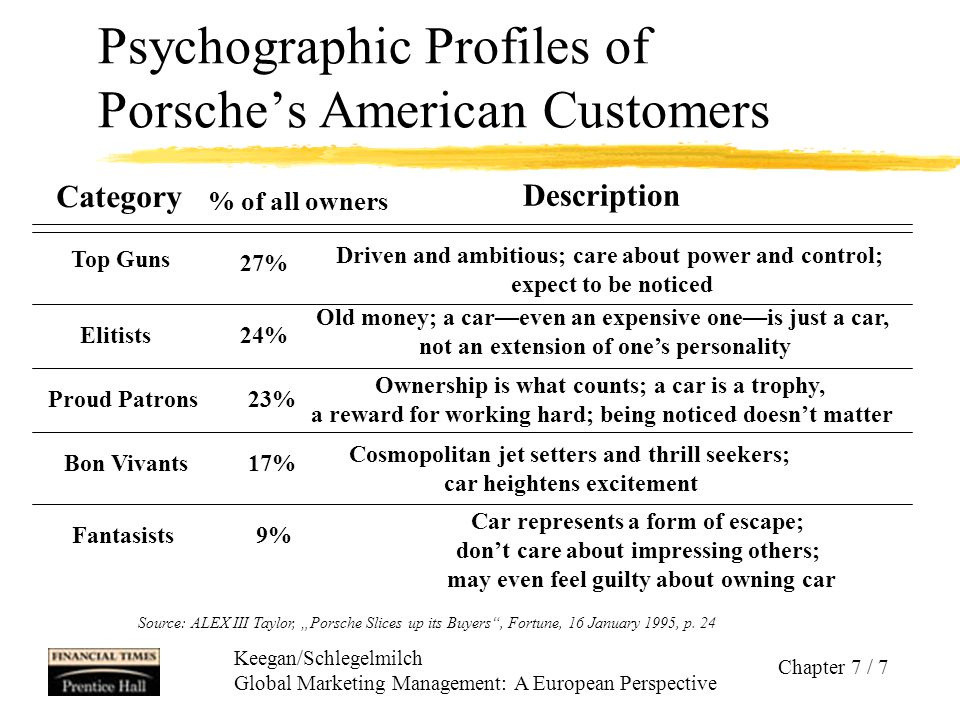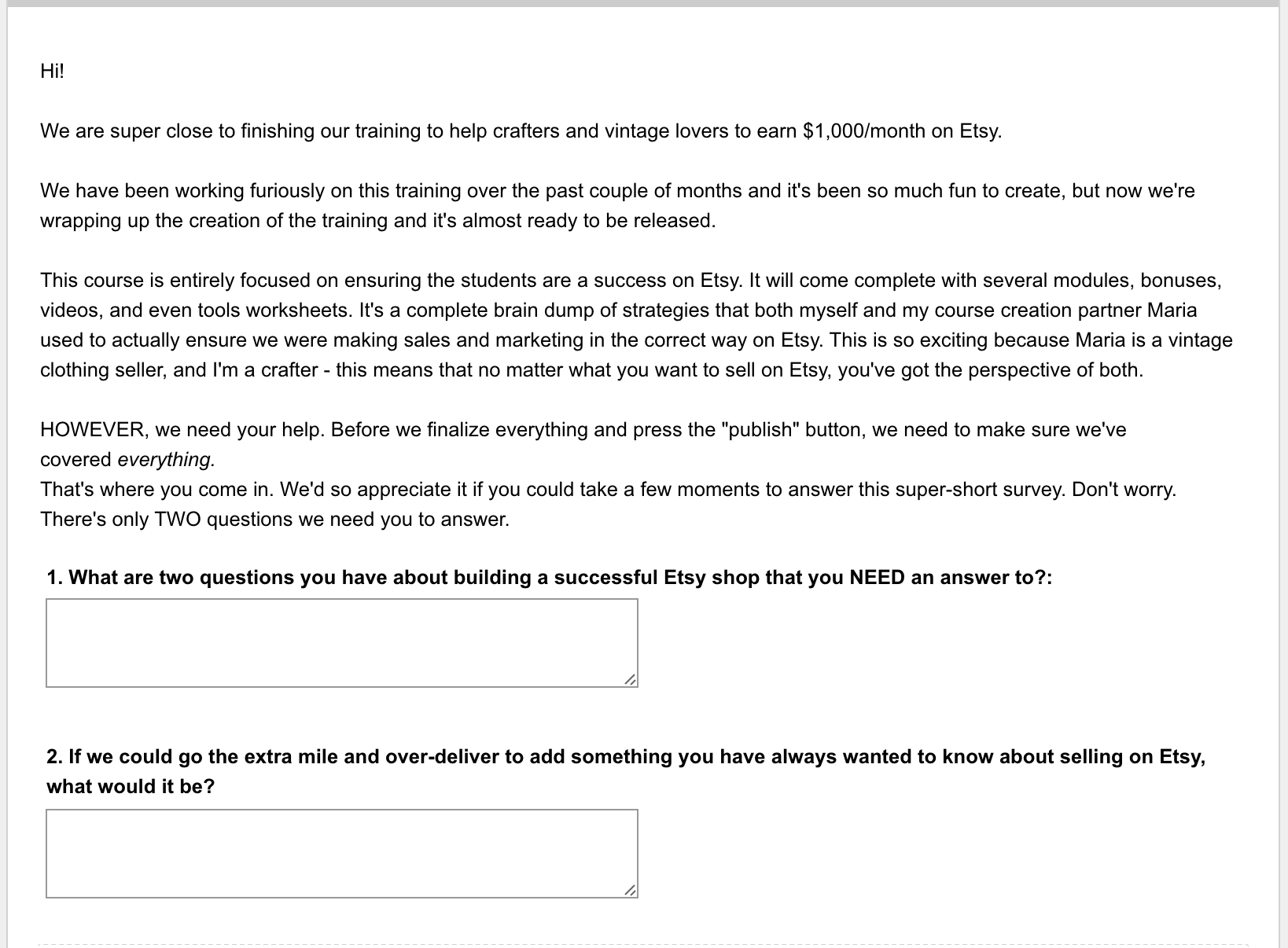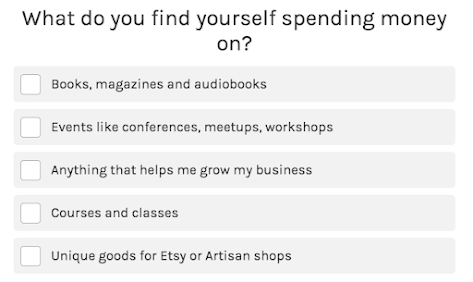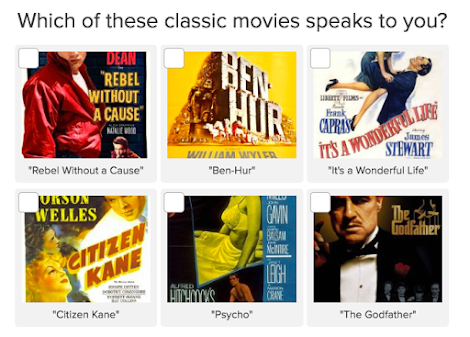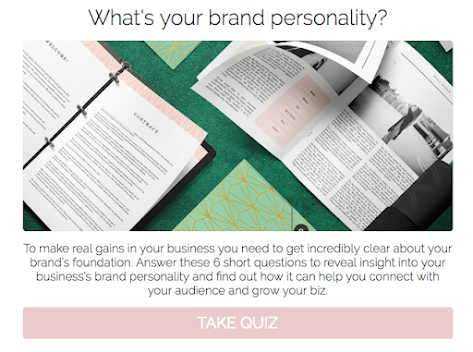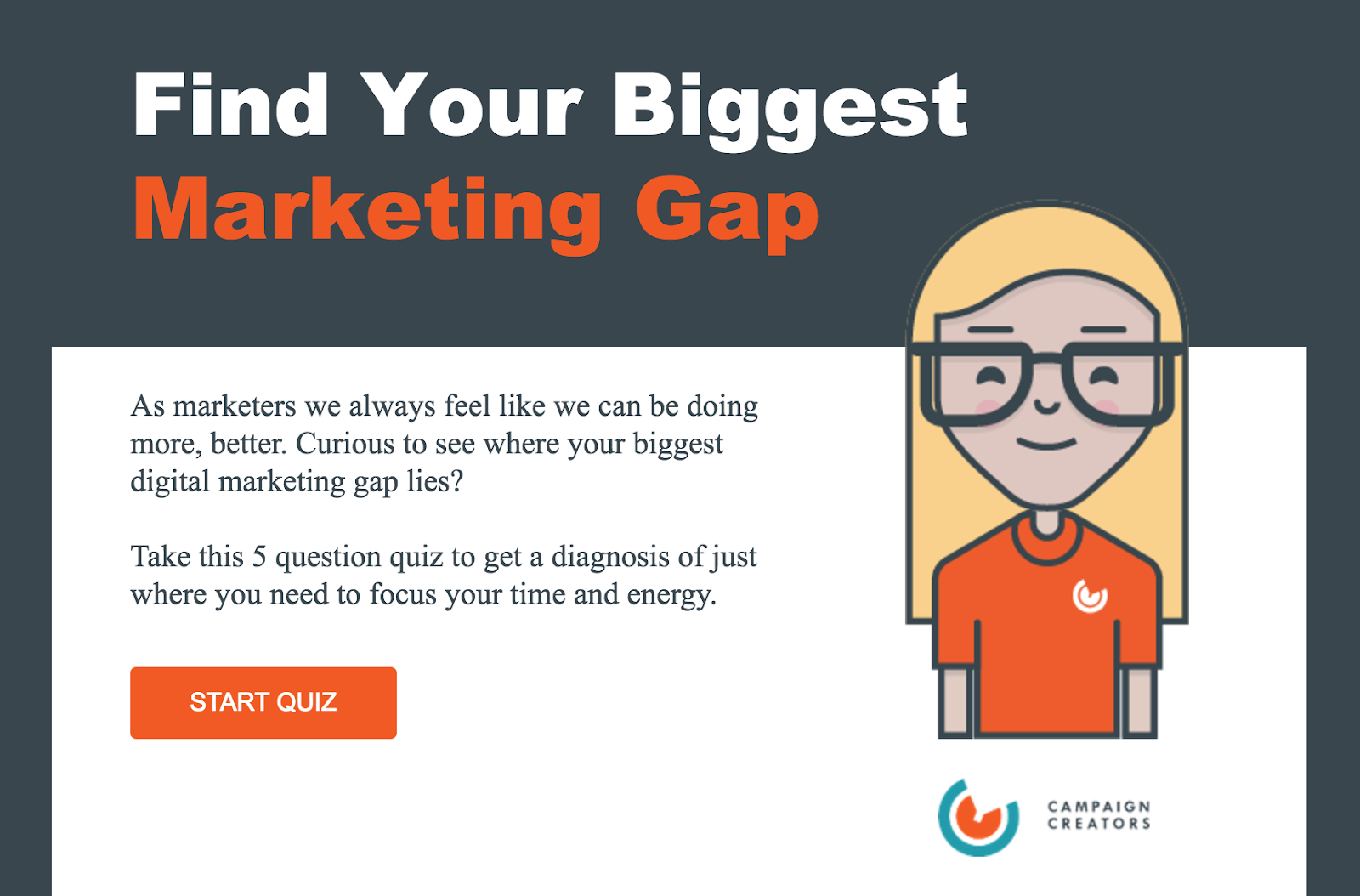For every marketer, no matter what industry, niche, or type of business they’re in, there is one central tenet that they all must follow: “Know your customer.”
And every marketer worth their salt understand that the key to achieving that lies in their ability to gather quality data. It’s why businesses invest millions of dollars into market research, doing their best to get a clear picture of who their customers are and what makes them tick.
But while most marketers are able to describe to you what their ideal customer looks like, rattling off things like gender, age range and level of education, many will be stumped when asked to describe why their customers buy.
Enter the world of psychographics marketing, possibly “the greatest thing that ever happened to marketing.”
If you’re unfamiliar with the term, don’t worry. In today’s article, I’ll be going over everything you need to do about psychographics marketing and, even better, I’ll teach you how to combine it with the power of online quizzes so you can supercharge your marketing even further.
Create your own psychographics quiz now!
Making Sense of Psychographics
First things first, let’s get a handle on this thing called “psychographics.”
Traditionally speaking, marketers have segmented their customers based on their demographics or “hard” data such as their age, sex, location and other broad variables. While this is helpful in giving businesses the ability to tailor their marketing strategies and tactics to specific customer groups. The problem is that demographic data simply isn’t enough to give a marketer anything more than a vague picture of what their audience looks like.
Developed in the early 1960s, psychographics was created as a way to help marketers gain better insight into their customers by going beyond demographic data.
Unlike demographics, psychographics is designed to give marketers an understanding of why a certain customer chooses to buy a product. By asking questions about a customer’s values, interests and opinions, a marketer can build a much more complete picture of their target audience and what motivates their purchasing decisions.
For example, psychographic data can tell you that your ideal customer is someone that is ambitious, prioritizes their career and focuses on self-improvement. This is a goldmine of information for marketers because they can now increase the effectiveness of their marketing strategy by appealing to these specific behavioral traits.
How Psychographics can Supercharge Your Marketing
Perhaps the biggest benefit of employing psychographics is that it allows you to adopt a more tailored and personalized approach with your marketing strategy.
According to a study by HubSpot, the modern consumer now expects, and even welcomes, a certain level of personalization in the marketing messages they receive. The study going further to find that offering CTAs that were tailored to an individual’s interests generated a 202% higher conversion rate than those that used a generic message.
Through gathering psychographics data, businesses can also segment their audience based on their behavioral attitudes.
Instead of targeting a group that you hope contains some people that are interested, with your psychographic data you can market exclusively to people who you know for sure are attracted to what you’re offering. With one study finding that advertising strategies that used psychographic targeting outperformed traditional advertising that used demographic targeted by a whopping 200%.
But while throwing around all these stats and figures is all well and good, let’s take at what psychographics marketing looks like in action.
Case Study #1 – Porsche
For luxury car brand Porsche, they understood that even within the same demographic group can possess widely different purchasing motivations and behavioral elements.
In order to increase the ROI of their marketing campaigns, Porsche began segmenting their audience based on their psychographic profile. After conducting multiple research studies into their target audience, Porsche was able to pinpoint the top five reasons why someone would want to purchase their product.
From there Porsche developed a unique marketing message for each customer segment designed to appeal their individual motivations and desires.
For example, for the “top gun” customer segment, Porsche would primarily advertise their most expensive car models, while also highlighting the exclusivity and sex appeal aspects of owning a Porsche. Whereas for the “proud patrons” group, Porsche heavily promoted the message of how owning a Porsche was a symbol of a hard-working individual and focused more on the theme of personal fulfillment.
Case Study #2 – EtsyHowTo
More than just refining your marketing strategy, psychographic data can also help you develop new products as in the case of EtsyHowTo. For founder Sarah Peterson, she wanted to develop an online course teaching people how to build a business using Etsy.
While she had an initial idea of what her audience wanted, she also very smartly made the decision to gather psychographic data from her audience by emailing them a simple survey.
The survey itself was simple, only having two questions, but they were designed to allow Sarah greater insight into what solutions her audience were looking for and the kind of challenges that were holding them back.
After receiving nearly 60 responses to the initial survey, Sarah found out that a major problem her audience was facing was around shipping. With this knowledge, Sarah knew to create a whole module centred around shipping and made sure to mention it in all her marketing materials and copy when promoting her course.
Getting to Know Your Audience Through Quizzes
“Alright, alright,” I hear you say. “I get that psychographics marketing is powerful and can take my marketing to the next level, but what about the quiz part of this ‘Quizzes and Psychographics’ article?”
Don’t worry dear reader, all will be revealed in due time.
So, onto quizzes.
It used to be that the ability to even perform psychographic research and gather that kind of customer information was limited to big companies with access to big resources. For the average small business owner who couldn’t afford to hire a marketing research agency, conduct customer interviews or run focus groups, they were left in the lurch.
Fortunately though, getting involved with psychographic marketing is now easier than ever. You just need to know how to do it.
Here at Interact, we’ve written at length about how you can quizzes to learn more about your customers. Which is why it should come as no surprise that we believe that online quizzes are the perfect way to capture important psychographic data and information about your target audience.
Just take a look at your average personality quiz.
Unlike a formal customer survey, a personality quiz provides a fun and creative way for businesses to learn more about their customers. Combined with the fact that people naturally love taking online quizzes and that it’s super easy to get your quiz in front of your target audience, there’s no denying that online quizzes are a simple and effective way to gather psychographic data.
Now, that isn’t to say that online quizzes are going to completely replace traditional market research methods like focus groups and surveys. A quiz just isn’t set up to capture that type of data. However, what we are saying is that psychographic marketing isn’t restricted to multinational conglomerates anymore.
Anyone, from the solo entrepreneur to the enterprise-level businesses, can create a well-structured quiz that will let you learn more about who your customer is and how to better serve them.
Asking the Right Questions in Your Psychographics Quiz
When it comes to psychographic data there are three major areas in which you can gather information and build a fairly complete view of their motivations, desires and challenges, and they are a person’s: Activities, Interests and Opinions. It’s because of these three elements that psychographic is sometimes known as “AIO Variables.”
With that in mind, in your own quiz, you should be making sure to ask questions that relate to each of these three areas so you can gather a more complete understanding of your audience.
Activities Questions
What a person does with their time tells a lot about themselves. For example, if they’re someone who spends a lot of their time playing sports then it can be assumed that their personal fitness and health are very important to them.
Keep in mind that the goal is not to find out what activities people are merely interested in, but the activities that they actively participate in. You want to find out how much of their time they spend on an activity, why they enjoy that particular activity and the level of emotional investment they have.
By asking activity-based questions in your online quiz you can gather a wealth of insight into how to better approach your audience.
For example, you might discover through your online quiz that your audience loves travelling and always look for opportunities to experience new locales and cultures. This could mean you can start retargeting people who visit travel sites, include more adventurous images in your ads and even fine-tune your marketing message to promote a stronger theme of exploration and discovery.
Here are a few questions you can ask in your online quiz:
- Where do you spend the majority of your time?
- What’s the first thing you do in the morning?
- What do you like to do in your free time?
- How much time do you spend on X?
- When on holiday you like to…
- Choose an activity…
- A typical weekend for me looks like…
- The one thing I cannot live without is my….
Interest questions
The next thing to figure out is what your audience is interested in. Unlike an activity an interest represents a desire for something and those desires can reveal a lot about a person’s values, who they want to be and how they see themselves.
A person’s interests are what defines them as a person and motivates their behaviours. For instance, if someone is interested in being a parent then this will manifest itself in a variety of ways such as spending the majority of their time reading parenting blogs, volunteering at familiar organisations or spending time with children.
This is a very powerful insight for marketers as one of the most powerful psychological forces in marketing is being able to help someone achieve the identity they want.
For example, if you know that your audience’s primary interest is gaining wealth, then you can reposition your brand as one that actively helps people achieve wealth. Making your marketing message far more compelling because you’re touching upon an interest that is vital to your audience’s desires and identity.
But keep in mind that interests is an incredibly broad category and there are numerous sub-sections of interests. For example, someone can be interested in movies but you’d have to dig deeper to find out what kind of movies they’re especially interested in.
Which is why it’s usually best to ask questions that start off with a broad interest but gives specific sub-sections as an answer, questions like:
- If you were at the movies right now, what would you be watching?
-
I am most passionate about…
-
Which of these celebrities would you follow?
-
What’s your dream holiday?
-
My favorite kind of weather/season/color is…
-
I like to collect…
-
What are you constantly trying to improve?
-
Which quote describes you the best?
-
If I had all the free time in the world I would be…
-
My fashion style can be best described as…
Opinion Questions
Everyone has an opinion on something. Regardless of whether or not it’s true, an opinion is something that a person holds very close to themselves and shapes the communities and groups they belong to and the way they feel towards certain issues.
This can be extremely powerful for businesses who are looking to build a sense of community around their brand.
In Robert Cialdini’s latest book, Pre-Suasion, he identifies “unity” as the seventh major principle of influence. The concept of unity lies around the identity a person shares with someone else, the more we see our opinions and values reflected in another person the more likely we are to react positively to them. You can see this concept of unity happening everywhere with people forming groups with others they view as sharing the same beliefs and opinions as themselves.
What this means for marketing is that the more you can appeal to your target audience’s opinions, the more likely they are to positively react to your brand. For example, if you’ve discovered that your audience cares deeply about the environment then promoting an environmental cause can generate a lot of goodwill towards your brand.
Here are some questions you can ask to find out what your customer’s opinions are:
-
What’s your opinion on X?
-
What’s the easiest way to get into an argument with you?
-
What will you never back down from?
-
If I lived in a utopia my world would look like…
-
What trait do you value most?
-
When someone says X, I say X…
Pro-Tip: Don’t forget to ask “sliding scale” questions where someone can rate how strongly they agree or disagree with a statement. These types of questions are best at figuring out how strongly someone feels towards something and helping you gauge what their opinions are.
Check out the following resources for more help:
Getting Strategic with Your Psychographics Quiz
Now that we know the online quizzes are great at helping you gain insight and better understand your customer, let’s take a look at a few other ways you can combine online quizzes and psychographic marketing into your marketing strategy.
Quizzing existing customers
We’ve already discussed, one of the best ways to use your online quiz is to gain insight into how your audience thinks. But instead of just creating any old quiz and sending it out into the world and hoping that the right people are answering them, create a quiz designed specifically for your existing customers.
Surveying your customers and asking them questions is a vital part of developing any effective marketing strategy. However, you don’t have to limit yourself to the standard customer experience survey in order to gain psychographic data.
Create a personality quiz designed to find out what they’re interested in and the type of activities they invest most of their time in. All of the insight you gather will be invaluable in helping you refine your marketing strategy and can even reveal opportunities for you to take advantage of.
Quizzing your target demographics
As we’ve written about before, quizzes are an incredibly powerful way to generate new leads for your business. Once you have a better idea of who your ideal customer is and what drives them, you can take that information to promote your quiz to audience segments you may have never considered before.
For example, if you’ve found out that there your audience really enjoys hiking then it could be worth your while to promote your quiz directly to online groups that enjoy hiking. Or, you may have discovered that your ideal customer is someone that cares deeply about self-improvement, so you might design a quiz around the topic of self-improvement.
Through applying your psychographic data, you can craft quizzes are irresistible to your target audience and greatly increase the number of leads that come your way.
Retarget and nurture prospects
One very effective way to integrate online quizzes into your marketing strategy is to use them as a way to retarget warm leads who have fallen out of your sales funnel for one reason or another or to further nurture the prospects who are still in your sales funnel.
When it comes to retargeting, you can use your online quiz as a way to capture a lead’s attention again. Anytime you create a new quiz based on your psychographic data, you can retarget lost leads through social media and see if you can re-introduce them into your sales process.
On the other hand, you can conduct further psychographic research by using your online quiz to gather more data about individual prospects. For instance, if a prospect is still in the consideration stage of the sales funnel you can create a quiz designed to educate them about their pain points and the potential solutions. Not only will this further nurture the lead and continue building about that sense of trust and authority with your brand, but it can also help you personalize your sales pitch to that specific prospect.
Conclusion
Simply put, knowing your customer better makes your marketing better.
For the longest time businesses have been flying blind or, at the very least, attempting to understand their customer with one eye covered. By introducing psychographics they can finally get a clearer picture of who their customer is, what motivates them and the best way to appeal to them.
It’s clear the psychographic marketing is important for any modern business. Knowing how to gather and understand psychographic data can be instrumental in helping brands optimize their marketing strategy and the way they communicate with their customers.
The great news is that it’s become increasingly easy to acquire good psychographic data, all you need are a couple of online quizzes and you can get started.
Create your own psychographics quiz now!


